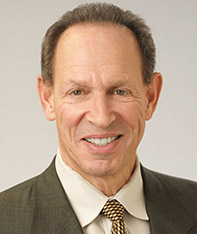When an American employer needs workers to provide labor or services and cannot find the appropriate labor force in the United States, that company may apply for H-2B visas, which allow non-citizen workers into the country temporarily to work that job.
What Is an H-2B Visa?
H-2B visas are only issued to non-agricultural workers, and only temporarily. (Agricultural workers are admitted under H-2A visas.) This option is commonly used in the landscaping, forestry, hospitality, recreational, and seafood industries. The program is run by U.S. Citizenship and Immigration Services (USCIS). The initial application must be made by the employer or agent, and once approved, the worker is allowed to apply for the H-2B visa through a U.S. Embassy or Consulate abroad, or directly at the border through U.S. Customs and Border Protection.
There is a limit, or “cap,” on how many workers are granted H-2B visas in a fiscal year, and it has increased steadily since the program began. The current limit is 66,000 foreign nationals per fiscal year. Certain H-2B workers are not subject to this cap, including workers who extend their stay, change employers, or change the terms and conditions of their employment. Certain others are exempted altogether, including fish roe processors, technicians, or supervisors; and workers in the Northern Mariana Islands or Guam until December 31, 2019.
In February 2018, USCIS reported an “unprecedented” surge in applications, and that the amount of workers will likely exceed the available H-2B visas. Because of these caps and the changing political and immigration climate, we strongly recommend you begin the application process immediately if you need H-2B workers. Returning workers no longer qualify for special consideration, as Congress failed to renew the Save Our Small and Seasonal Business Act, which exempted returning H-2B workers from the annual cap.
What Is “Temporary” Work?
H-2B visas are only granted on a temporary-work basis. For H-2B visas, an employer’s need for labor or services is considered “temporary” based on:
- One-time need. You must prove either that the job did not exist before, and will be completely done once your temporary worker performs it, OR that the job opening is permanent but has a temporary need to be filled by a non-citizen worker.
- Seasonal need. You must prove that the need for workers is tied to a season of the year, and of a recurring nature. It’s important to note you cannot claim seasonal need if the job is unpredictable, subject to change, or simply a vacation for your permanent employees.
- Peakload need. You must prove there is temporarily more work than your U.S. workers can handle. Please note that the temporary workers cannot be added to staff for an ongoing labor or service need.
- Intermittent need. You must prove you have not previously had permanent workers performing the same job, and that you only occasionally need workers to perform the job for short periods of time.
Seasonal, peakload, and intermittent need are generally limited to nine months or fewer. One-time occurrence remains available for a three-year timeframe. Any H-2B worker’s spouse and unmarried children under 21 may also be admitted to the United States with H-4 status.
A worker’s H-2B visa can be extended in one-year increments depending on employer need, but the maximum stay is three years. After, the worker must leave and remain outside the United States for three months before seeking readmission.
What Are the Requirements?
To have non-citizen workers qualify for H-2B visas, an employer must prove:
- There are no U.S. workers who are able, willing, qualified, and available to do the temporary work.
- Employing H-2B workers will not adversely affect the wages and working conditions of similarly employed U.S. workers.
H-2B employers are also required to advertise the job to U.S. workers prior to opening them up to foreign nationals.
Before filling out the application, the employer must petition the U.S. Department of Labor for a valid temporary labor certification for each worker. After receiving this certification, the employer must submit it alongside Form I-129, Petition for Nonimmigrant Worker, to USCIS. Multiple workers may be named on the same petition, if they are performing the same labor for the same time frame. If you request H-2B workers from both eligible and non-eligible countries, it is best to file two separate Form I-129 petitions. The current filing fee is $460.
Please note, an employer or agent cannot accept any fee or compensation from a non-citizen in return for employment.
Need Immigration Help?
For over 60 years, the attorneys at Pollack, Pollack, Isaac & DeCicco, LLP, have helped individuals, families, and businesses with immigration issues throughout the United States. You can ask questions about H-2Bs and nonimmigrant visas by contacting our reputable New York immigration lawyers online or by calling 646-779-2896.










